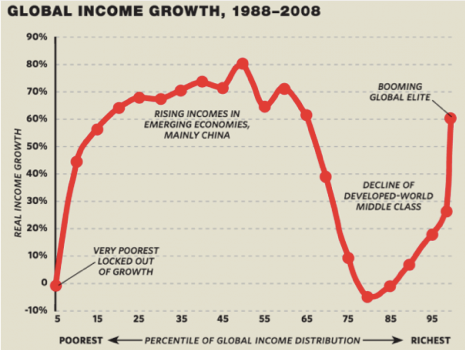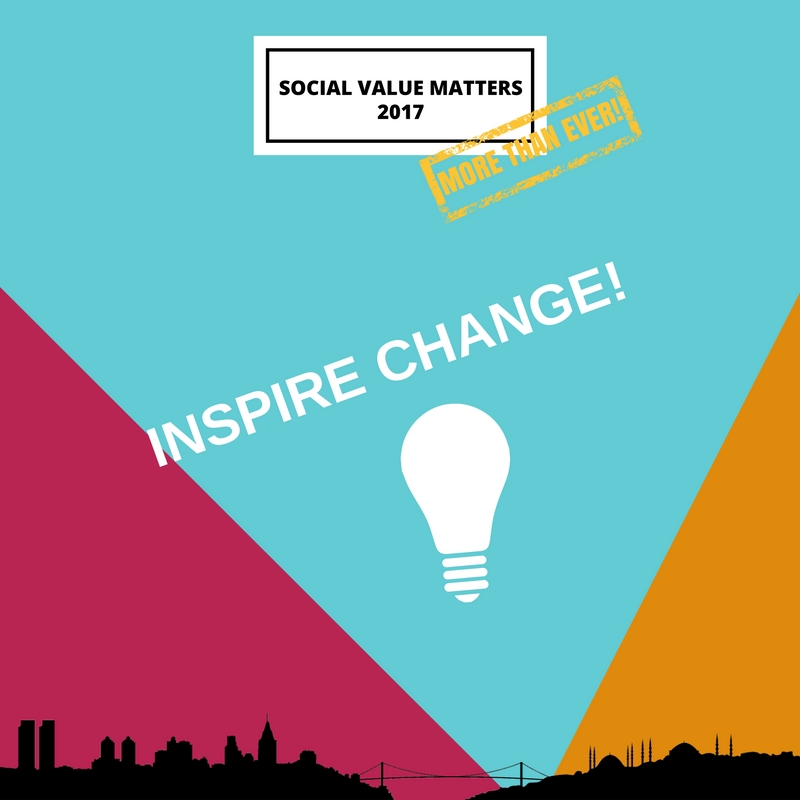Do we risk the return of feudalism?
Jeremy Nicholls argues that the world needs to change the way that it accounts for value. This is vital to reduce ever-increasing inequality, which – if it isn’t halted – will take us back to a feudal society.
I have to confess I’ve always had a soft spot for Marx and his analysis of capitalist economies, even for that surplus labour theory of value thing. Right up to when he started predicting the future, that feudalism leads to capitalism leads to socialism leads to communism bit, with some trying to skip the socialist or even the capitalist stages. Not so good.
The biggest problem was that when we all agreed this wasn’t working out quite like that, we all got stuck in the alternative that feudalism leads to capitalism leads to more capitalism leads to even more capitalism and so on until finally there is enough growth for everyone. This clearly isn’t working. And it’s not what has been happening.
It’s gone feudalism, capitalism, and now back to feudalism again, and perhaps back to something even earlier. Feudalism at least recognised that feudal lords had some responsibilities to kings and queens who had, in theory, responsibilities to their people. The uber rich of the 21st century have no such responsibilities, only their desire for more. It’s like the middle ages, but with the internet and barrel bombs.
The 21st century is like the middle ages, but with the internet and barrel bombs
Capitalism was that passing moment where the means by which we produce things, to meet (some) people’s needs, allowed a different group of people to gain (some) control over resources and the returns to those resources.
Let’s call them the middle class, a class between the owners of wealth and those who work to sustain their existence, whether paid or unpaid. Kicking off years of conflict from the French revolution to now, this group has done well. And in parts of the world, globalisation means there are still people moving into this group. The best representation of this is Branco Milanovic’s now famous elephant graph.

Source: Christoph Lakner and Branco Milanovic, World Bank
Whilst this highlights the relative decline for some in this group, many of whom live in developed countries, it’s important not to miss the increasing control that a small percentage of the world’s population, into which there appears to be a little social mobility, exerts over resources.
According to Oxfam, eight men own the same wealth as the 3.6bn who make up the poorest half of humanity. This wealth inequality is reflected in a long-term decline in the share of income relating to employment (as opposed to, for example, income from land, shares or other assets). This is not happening because this reflects the higher skills and aptitudes of some. Imperfect markets are the norm and increasing inequality has meant the conditions of perfect markets are being eroded. One requirement is effective anti-trust legislation, ensuring that monopolies do not develop, creating super-profits for a few.
‘Some of the increase in market power is the result of changes in technology and economic structure. And some of it reflects the naked abuse and leveraging of market power through the political process: Large banks, for example, lobbied the US Congress to amend or repeal legislation separating commercial banking from other areas of finance.’ Stiglitz
Transnational and transtaxable
This makes the current growth of nationalism somewhat ironic since the uber-wealthy are transnational (and transtaxable). This is not just about not paying taxes on legal income as about the proportion of income that is derived from illegal activity.
Inevitably, there are few statistics on this. The UN estimated illegal drugs sales in 2005 as approximately 1% of world trade, and human trafficking to be 0.1%. Both of these will have increased by the time the 2016 figures are released. In 2001, the International Chamber of Commerce estimated counterfeiting to be between 5 to 7% of world trade. In 2008, the value was estimated to be in order of $500 billion by the IACC.
At the same time, technology is changing the world around us faster than we can keep up, either as individuals or as societies. The dark web and bitcoin are only the beginning of marketplaces where transactions will be beyond the purview of national legislation.
The dark web and bitcoin are only the beginning of marketplaces where transactions will be beyond the purview of national legislation
Robotics will replace jobs and fast. Recent research by McKinsey calculated that 49 percent of time spent on work activities could be automated with “currently demonstrated technology".
It seems wildly optimistic that any increase in wealth will be mysteriously transferred to those who have been replaced, so they can enjoy a life of comfortable inactivity, despite growing arguments for a minimum income for all. Without this, we would have to believe that there will be an increase in demand for other things that people do that robots can’t.
And whilst robotics will increase the ratio of capital to employment in production it is also increasing this ratio in services, in law, accounting, medicine, engineering and all those areas where people, backed up by barriers to entry from professional bodies and unequal access to education, could create higher returns and become that middle class. Those areas of the world where a new middle class is emerging, by competing on price in a global market place, will be no more able to compete on price with robotics and AI than anyone else. There may be new jobs but much less likely that these will demand a premium.
An economy of disempowerment owned by the uber-rich
So we move to a global economy driven and owned by the uber-rich, where a pretence of democratic choice masks disempowerment. An economy of low wages and low skills. There will some future opportunities in providing services. Programming and systems management, for a while; security, policing and prisons, for a while; providing advice, for a few, in wealth management, architecture, interior design, landscaping; in culture for music, art, theatre; oh and sex. Not much for everyone else.
And not much scope for revolution that benefits the majority. Only when the techniques of production change and shift to favour the relative economic position of the majority over another will revolutions that increase equality be possible.
The Black Death in 14th century Europe and the combination of fossil fuels, limited liability companies and accounting in the 19th both created opportunities that shifted the distribution of wealth. But without these fundamental changes, revolutions tend to peter out or be more successfully suppressed. And, of course, then language will be controlled to ensure that the suppression is perceived by many to be in the interests of the oppressed.
‘The most potent weapon in the hands of the oppressor is the mind of the oppressed’ Steve Biko
And yet what hope we had for the free flow of ideas on social media. Until post-truth and trolls showed that for every benefit there was also a cost, and the balance is less about the technology than about underlying power relations. And now, where religion once was the opiate of the masses, social media and its narcissism appear to have become the new opiate.
At least religion referred to an external god and a god that came packaged with codes of social behaviour. The consequence of both religion and social media is to control and limit thought. Who needs an Assassins’ Creed apple to take away free will when our own social constructs are so much more effective, in which we can be all post-truth, post-expert and find our own alternative facts?
Social media and its narcissism appear to have become the new opiate
Whenever I ask anyone if they think inequality will reduce over the next few years, there are rarely any optimists. Yet if this is the case; that despite all our social innovation, impact investing, philanthropy and (declining) social welfare safety nets, it’s going to get worse, then we need to step back from our day to day busy-ness, working to create a better world, and think about this and imagine the interventions that would reduce inequality. And then find ways to make this happen.
The need to change the way we account for value
Social Value UK’s long-term goal is to change the way the world accounts for value, because this is a necessary (but not sufficient) condition to reduce inequality. And then to show, by practice and example, that it is possible to have a financial accounting system that accounts, in a standard and yet good enough way, for the positive and negative consequences of our actions on the lives of others. In a way that doesn’t need to answer all the questions now but could be enacted through legislation if we wanted it to.
Legislation could do this and would result in financial accounts that would better reflect society’s concerns and perhaps the concerns of many who have voted for change in recent elections.
I think we can do this. There are still issues, for example, on determining materiality and there is a dangerous sideline of only being accountable for goals, (purpose and intent) but broadly we know enough about how to do this to legislate. To get standardisation we now only need buckets of practice, transparency, shared and preferably independently-assured reporting, all of which would quickly follow legislation.
We need to lobby for the changes to legislation that would make financial accounting relevant to society’s interests.
We need to move to a model that transfers assets to those poor as a repayment for what has been done to their families and their communities by feudalism and latterly capitalism
It also means focusing more on empowering those who are affected by our activities. Giving people power to influence and control resource allocation decisions, building on, for example, how indigenous communities have regained control over resources and decisions.
Social Value UK is based in Liverpool, a city like many others, where the poorest communities have been the poorest for many years despite rounds of government interventions. It can’t be too much of a leap to argue that we need to move to a model that transfers assets to those poor as a repayment for what has been done to their families and their communities by feudalism and latterly capitalism.
To move the dial from unfettered individualism back to one where there are benefits and responsibilities in communities. Socialism by the back door perhaps. Marx may not have been a great predictor, or have a great theory of change, but he raised the right issue; the point is not to understand the world, the point is to change it!
 Pioneers Post is pleased to be a media partner for Social Value Matters, which takes place in Istanbul on 10 and 11 April 2017. There's still time to register to attend!
Pioneers Post is pleased to be a media partner for Social Value Matters, which takes place in Istanbul on 10 and 11 April 2017. There's still time to register to attend!
Header photo by Elentir under a Creative Commons licence.
